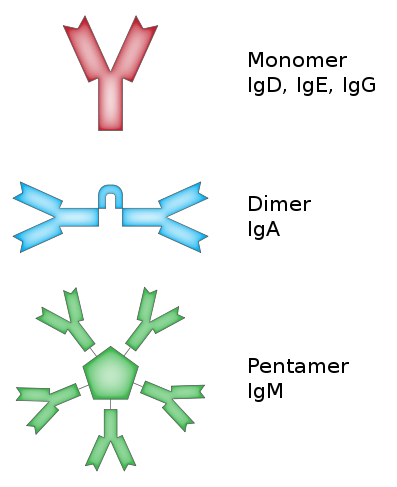A small proportion of multiple sclerosis (MS) patients treated with natalizumab develop anti-drug antibodies.
OBJECTIVE: The objective of this paper is to characterize the anti-natalizumab antibody response and to investigate differences between persistently and transiently antibody-positive patients.
METHODS:Screening for anti-natalizumab antibodies was performed using a standardized bridging ELISA. Antibody-positive samples were further analyzed for IgM and IgG1-4 antibodies using ELISA and ImmunoCAP®.
RESULTS: Anti-natalizumab antibodies developed in 57 of 1379 (4.1%) treated patients after about a treatment duration of three months. Of the positive patients, 20 (35%) patients reverted to negative, 19 (33%) patients were confirmed persistently positive and 18 (32%) patients were unconfirmed positive. Significantly higher anti-natalizumab antibody levels were detected in persistently compared to transiently positive patients. A cutoff value predicting persistence of antibodies could be determined with a sensitivity of 0.84 and a specificity of 0.80. IgM and IgG4 antibody levels were significantly higher in persistently compared to transiently positive patients, and IgG1, IgG2 and IgG4 increased significantly over time.
CONCLUSIONS: The level of total anti-natalizumab antibodies in a first positive sample can be used to predict patients at risk for persisting antibody positivity. However, neither IgM nor IgG1-4 antibodies could be used to discriminate between transiently and persistently positive patients.
This study shows that about 4% of people develop antibodies that react with tysabri within about 3 months of which about a third become subsequently negative. If there antibodies neutralise the effect of tysabri it will not work and could cause allergic reactions when tysabri is administered. there was no influence of antibody isotype i.e. IgM or IgG1-4 All drugs made out of protein cause antibodies to be generated and therefore have the risk that their function would be neutralised. It is important to know if this happens such that you can change drug. The worry with antibodies is if the antibody response is common to other therapeutic antibodies.
Labels: Tysabri
